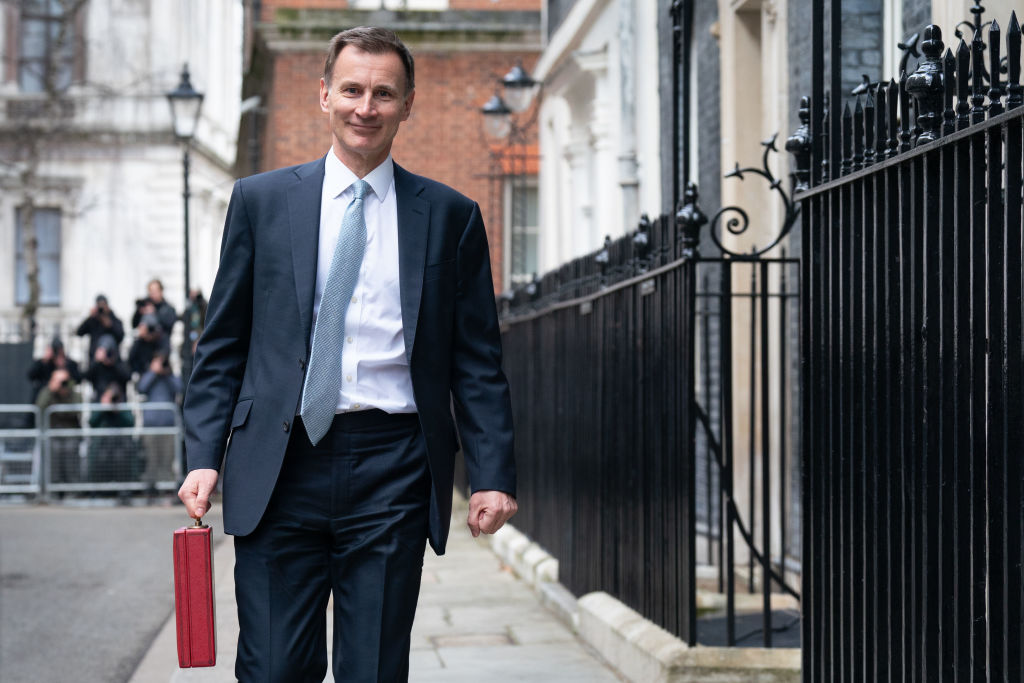Hunt announces extra tax on vaping from 2026
March 6, 2024

Chancellor Jeremy Hunt said he is planning to introduce an extra tax on vaping products from October 2026, aiming to make the habit more expensive to deter non-smokers from take it up.
Hunt also said that the government would introduce a one-off increase in tobacco duty at the same time to maintain the financial incentive to choose vaping over smoking.
“To discourage non-smokers from taking up vaping, we are today confirming the introduction of an excise duty on vaping products from October 2026 and publishing a consultation on its design,” Hunt said in his budget speech to parliament on Wednesday.
Currently most vapes are subject to value added tax at the usual 20 per cent rate but there is no extra levy applied, as is the case for tobacco products.
The rates will, subject to consultation, be £1.00 per 10ml for nicotine free liquids, £2.00 per 10ml on liquids that contain 0.1-10.9 mg nicotine per ml, and £3.00 per 10ml on liquids that contain 11mg or more per ml.
The government will also introduce a one-off tobacco duty increase of £2.00 per 100 cigarettes or 50 grams of tobacco from 1 October 2026.
“Because vapes can also play a positive role in helping people quit smoking, we will introduce a one-off increase in tobacco duty at the same time to maintain the financial incentive to choose vaping over smoking,” Hunt added.
Some e-cigarettes are taxed at a lower rate if they have been classed as a medical product used for treating smoking.
Jefferies analyst Owen Bennett said the tax could benefit larger players such as British American Tobacco by making it harder for smaller players to compete.
“BAT, especially given its highly profitable broader cigarette business, can afford to swallow the tax and not adjust prices,” he said, whereas it could make smaller firms’ products unviable.
BAT said it supports the introduction of a “low” excise tax on the nicotine-infused liquid in vapes to better control the market, but said a tax linked to nicotine content would be difficult to enforce.
“We encourage the government to implement a vape tax sooner than October 2026 to tackle the illicit market that is already prolific,” a BAT UK spokesperson added.
A sharp rise in vape use by non-smokers and young people has forced the British government – a relative proponent of vaping as a way to reduce the harms of smoking – to consider tougher controls.
Maggie Rae, president of the Epidemiology & Public Health Section of the Royal Society of Medicine, said any tax must be carefully considered to ensure it does not undermine efforts to encourage smokers to quit.
Smokers’ rights lobbyists have criticised the chancellor following the announcement of the introduction of excise duty on vaping products from October 2026 and a concurrent “one-off” increase in tobacco duty.
Simon Clark, director of the smokers’ lobby group Forest, described the imposition of a vape levy as “stupid, short-sighted and potentially counter-productive”.
“If the government is serious about advocating vaping as a substantially less harmful alternative to smoking, a levy on vaping products sends completely the wrong message to consumers,” he said.
“Vaping products are already subject to VAT. Imposing excise duty as well is a stupid, short-sighted and potentially counter-productive measure that could deter many existing smokers from switching to a reduced risk product that has helped millions of smokers to quit.”
Regarding further increases in tobacco duty, one-off or otherwise, Clark added: “Above inflation increases in the cost of tobacco disproportionately punish those on lower incomes.
“Further tax hikes will drive even more smokers to the black market, taking money from legitimate retailers and putting it into the hands of criminal gangs.”
